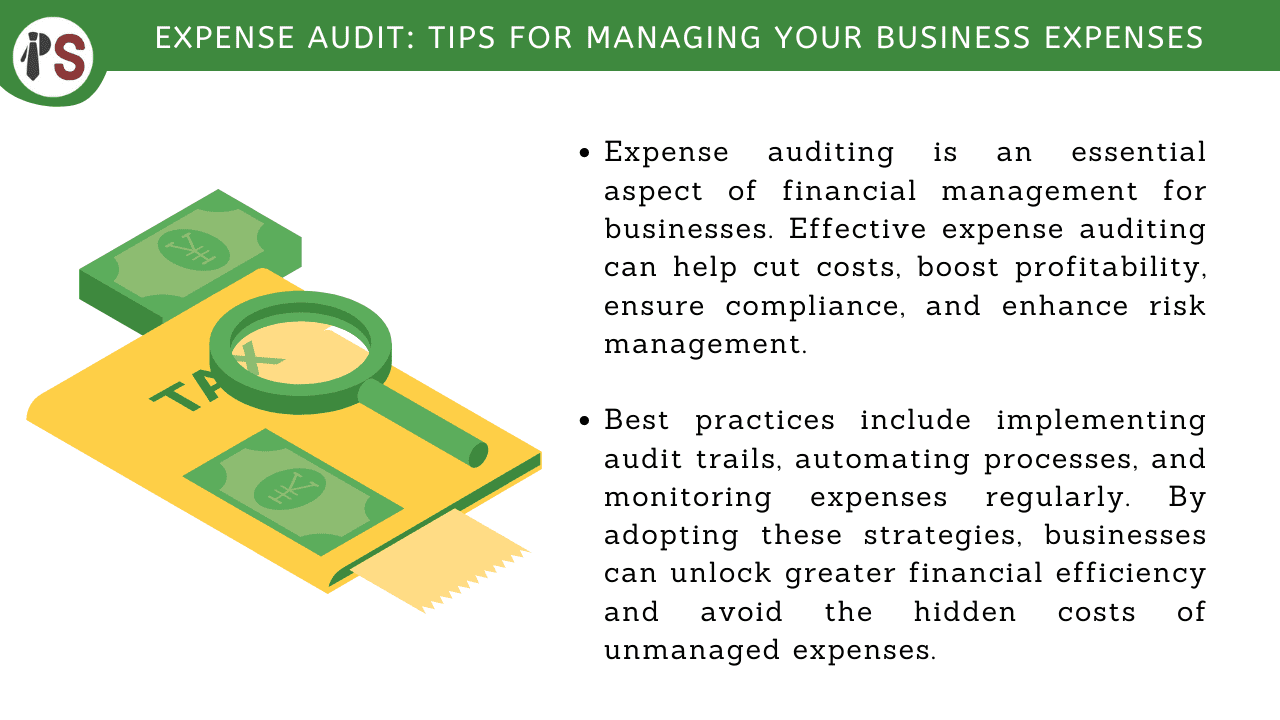
Managing business expenses can be challenging, especially for small businesses. Expenses are an inevitable part of running a business, but it's essential to keep them in check to ensure financial stability. An expense audit is a crucial tool for businesses to track their expenses, identify areas of improvement and implement cost-saving measures. In this blog, we'll discuss the importance of an expense audit and share some tips for managing your business expenses effectively.
Expense audits are critical to the financial health of a business. They help business owners track their expenses, identify potential areas of waste, and prevent fraud. By conducting regular expense audits, businesses can better understand their spending habits, eliminate unnecessary expenses, and optimize their finances.
Identifying Cost Savings Opportunities: By analyzing expenses and identifying areas of inefficiency, businesses can reduce costs and increase profitability.
Enhancing Compliance: Expense audits can help ensure that all expenses are compliant with company policies and regulations, reducing the risk of non-compliance penalties.
Preventing Fraud: Expense audits can detect fraudulent activities and help prevent future occurrences, thereby increasing the integrity of financial statements.
Establish Expense Policies: Creating a comprehensive expense policy can help ensure that all employees understand the company's expectations for expenses. It should include guidelines for expense types, documentation requirements, and approval processes.
Use Expense Management Tools: Expense management tools can help automate the expense reporting process, making it easier to track and manage expenses. These tools can also help prevent fraud and ensure compliance.
Monitor Expenses Regularly: Monitoring expenses regularly can help identify issues and prevent overspending. Conducting an expense audit quarterly or annually is recommended to track spending trends and identify opportunities for cost savings.
Categorize Expenses: Categorizing expenses can help identify areas of inefficiency and provide insight into where to cut costs. Categories could include travel, office supplies, marketing, and rent.
Analyze Spending Data: Analyzing spending data can provide insights into areas of overspending and help identify opportunities for cost savings. It can also help businesses forecast future expenses and make informed financial decisions.
Expense audits are a vital part of managing business finances effectively. By conducting regular audits, businesses can identify inefficiencies, reduce costs, prevent fraud, and ensure compliance. Establishing expense policies, using expense management tools, monitoring expenses regularly, categorizing expenses, and analyzing spending data are all effective strategies for managing business expenses. By implementing these tips, businesses can optimize their finances and improve their financial health.
At Professional Saathi, we offer a range of business consultancy services that help businesses improve their performance, achieve growth, and overcome challenges.
Copyright 2026 © Created By KTPG PROFESSIONAL SAATHI CORPORATE CONSULTANT PRIVATE LIMITED, All Rights Reserved.
Leave Your Comment